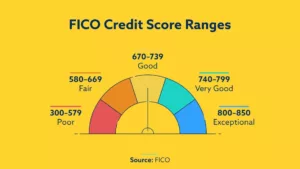Each state has a time limitation to legally enforce a debt. That time limit is referred to as the statute of limitations.
Once the time has expired on a debt you are no longer legally bound to pay that debt and cannot be sued for payment.
However, if you make a payment on the debt, acknowledge you owe the debt, or make a written promise to pay the debt, it’s possible for the creditor to re-start the statute.
Creditors and debt collectors often know the statute of limitations has expired even though they make threats to sue you. They don’t want you to know there is no legal obligation to pay the debt once the statute date has expired.
Debt falls into four categories
Not all debt is the same. There are four different categories of debt. It’s important to know which type of debt you have because the time limits are different for each type.
Open-Ended Accounts
Open-ended accounts are considered revolving debt. This is where an account has a revolving balance that you can repay and then borrow again. Credit cards, in-store credit, and lines of credit are all examples of open-ended accounts.
Oral Agreements
Oral contracts are verbal agreements to pay back money. There is nothing in writing. These are debts that were made based on an oral contract only.
Promissory Note
A promissory note is a written agreement to pay back a debt in certain payments, at a certain interest rate, and by a certain date and time. Mortgages and student loans are two examples of promissory notes.
Written Contracts
Written contracts must include the terms and conditions of the loan. All debts that come with a contract that was signed by you and the creditor falls in the category of a written contract. A medical debt is an example of a written contract.
Find the statute of limitation in your state
Before you pay an old debt, determine the statute of limitations on the debt, to help make a decision.
- Alabama
- Alaska
- Arizona
- Arkansas
- California
- Colorado
- Connecticut
- Delaware
- Florida
- Georgia
- Hawaii
- Idaho
- Illinois
- Indiana
- Iowa
- Kansas
- Kentucky
- Louisiana
- Maine
- Maryland
- Massachusetts
- Michigan
- Minnesota
- Mississippi
- Missouri
- Montana
- Nebraska
- Nevada
- New Hampshire
- New Jersey
- New Mexico
- New York
- North Carolina
- North Dakota
- Ohio
- Oklahoma
- Oregon
- Pennsylvania
- Rhode Island
- South Carolina
- South Dakota
- Tennessee
- Texas
- Utah
- Vermont
- Virginia
- Washington
- Washington, DC
- West Virginia
- Wisconsin
- Wyoming


















